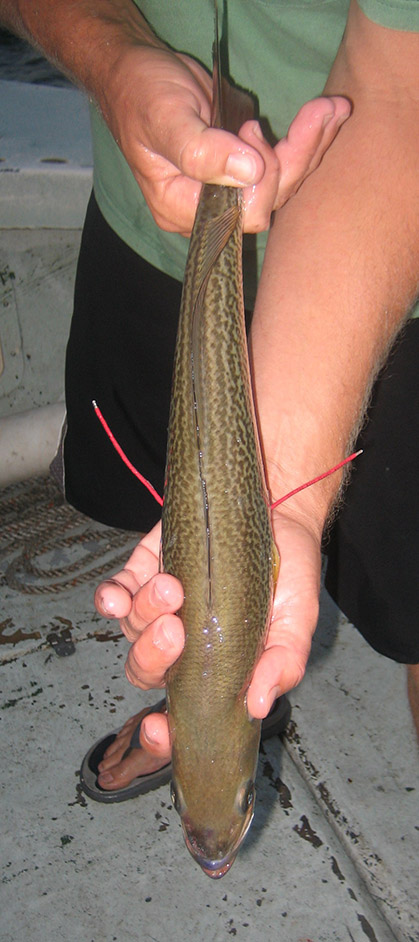Education
Ph.D., Fisheries, Wildlife, and Conservation Biology, North Carolina State University (2019)
M.S., Wildlife and Fisheries, South Dakota State University (2013)
B.S., Biology, Wisconsin Lutheran College (2009)
Research Interests
My primary research interests address aquatic ecological questions that can be applied to fisheries and resource management. I am specifically interested in fish trophic interactions, growth and recruitment, movement patterns, mortality, and their use as biological health indicators. I use multiple approaches in my research, ranging from simulations and hierarchical modeling to hands-on field work in the form of telemetry and fish tagging.
My research involves collaboration with state and federal agencies, fellow academic researchers, and commercial and recreational fisherman. Previous research projects have focused on coral reef monitoring, lake management plans aimed at controlling invasive aquatic plants, and power plant compliance to the EPA’s 316(b) mandate.
For my masters, I developed stream indices of biotic integrity in South Dakota and researched age structure, growth, and diet of northern pike in prairie streams. My PhD focused on better understanding the decline of weakfish (Cynoscion regalis) in North Carolina’s coastal waters by estimating fishing mortality through the use of high reward conventional tags and natural mortality through telemetry. Please visit the Weakfish Tagging Study page or my dissertation for additional project information.
My current postdoctoral research estimates cobia (Rachycentron canadum) survival using telemetry.
Selected Publications
Scheffel, T. K., J. E. Hightower, J. A. Buckel, J. R. Krause, and F. S. Scharf. 2019. Coupling acoustic tracking with conventional tag returns to estimate mortality for a coastal flatfish with high rates of emigration. Canadian Journal of Fisheries and Aquatic Sciences (Published online).
Breeggemann, J. J., M. A. Kaemigk, T. J. DeBates, C. P. Paukert, J. R. Krause, A. P. Letvin, T. M. Stevens, D. W. Willis, and S. R. Chipps. 2015. Potential direct and indirect effects of climate change on a shallow natural lake fish assemblage. Ecology of Freshwater Fish 25:487-499.
Krause, J. R. , K. N. Bertrand, A. Kafle, and N. H. Troelstrup, Jr. 2013. A fish index of biotic integrity for South Dakota’s Northern Glaciated Plains Ecoregion. Ecological Indicators 34:313-322.
Kafle, A., N. H. Troelstrup, Jr., Krause, J. R., and K. N. Bertrand. 2013. Assemblage structure of Chironomidae (Diptera: Insecta) from wadeable streams of the Northern Glaciated Plains, South Dakota, USA. Proceedings of the South Dakota Academy of Science 92:31-49.
James, D. A., I. J. Csargo, A. Von Eschen, M. D. Thul, J. M. Baker, C. A. Hayer, J. Howell, Krause, J. R. , A. Letvin, and S. R. Chipps. 2012. A generalized model for estimating the energy density of invertebrates. Freshwater Science 31:69-77.

